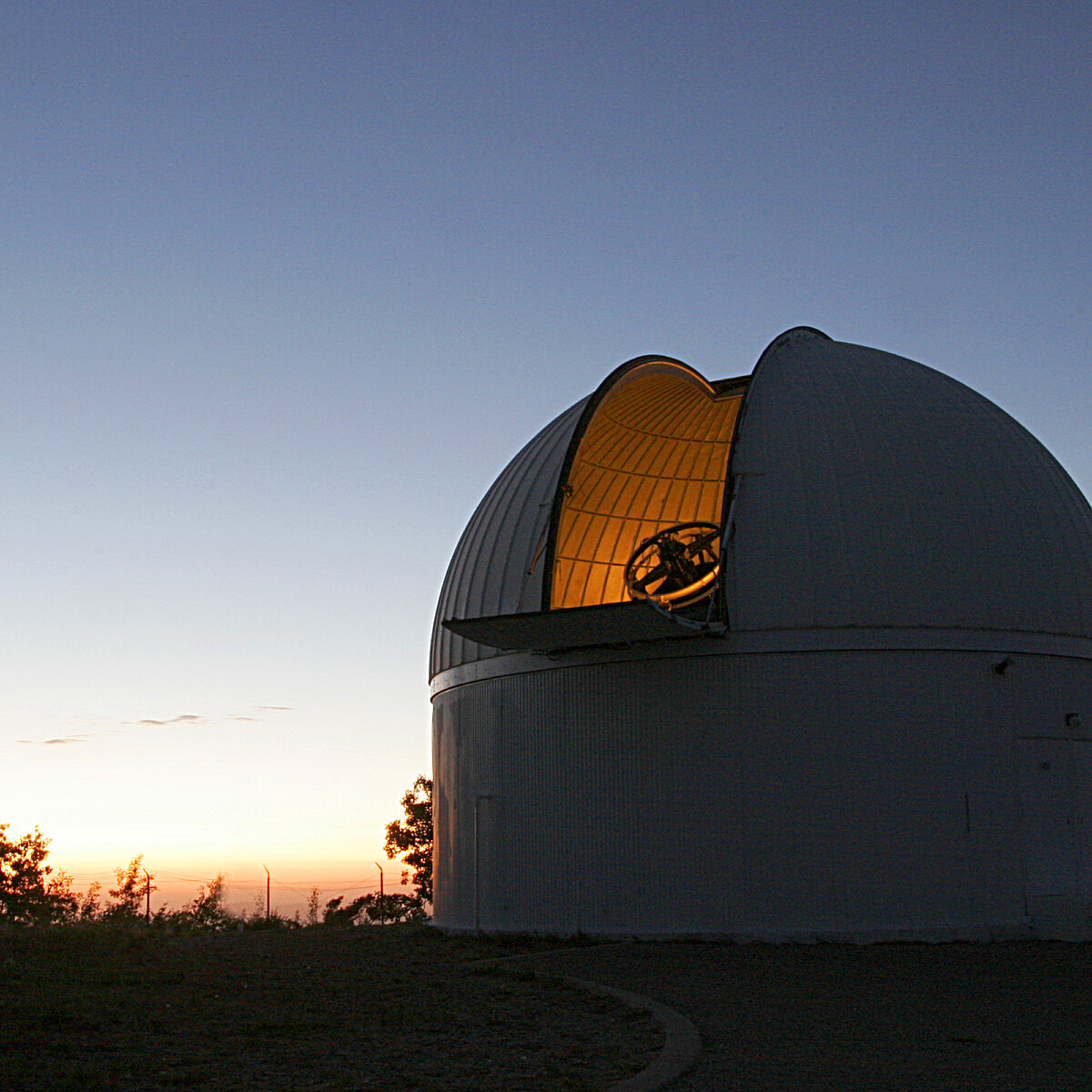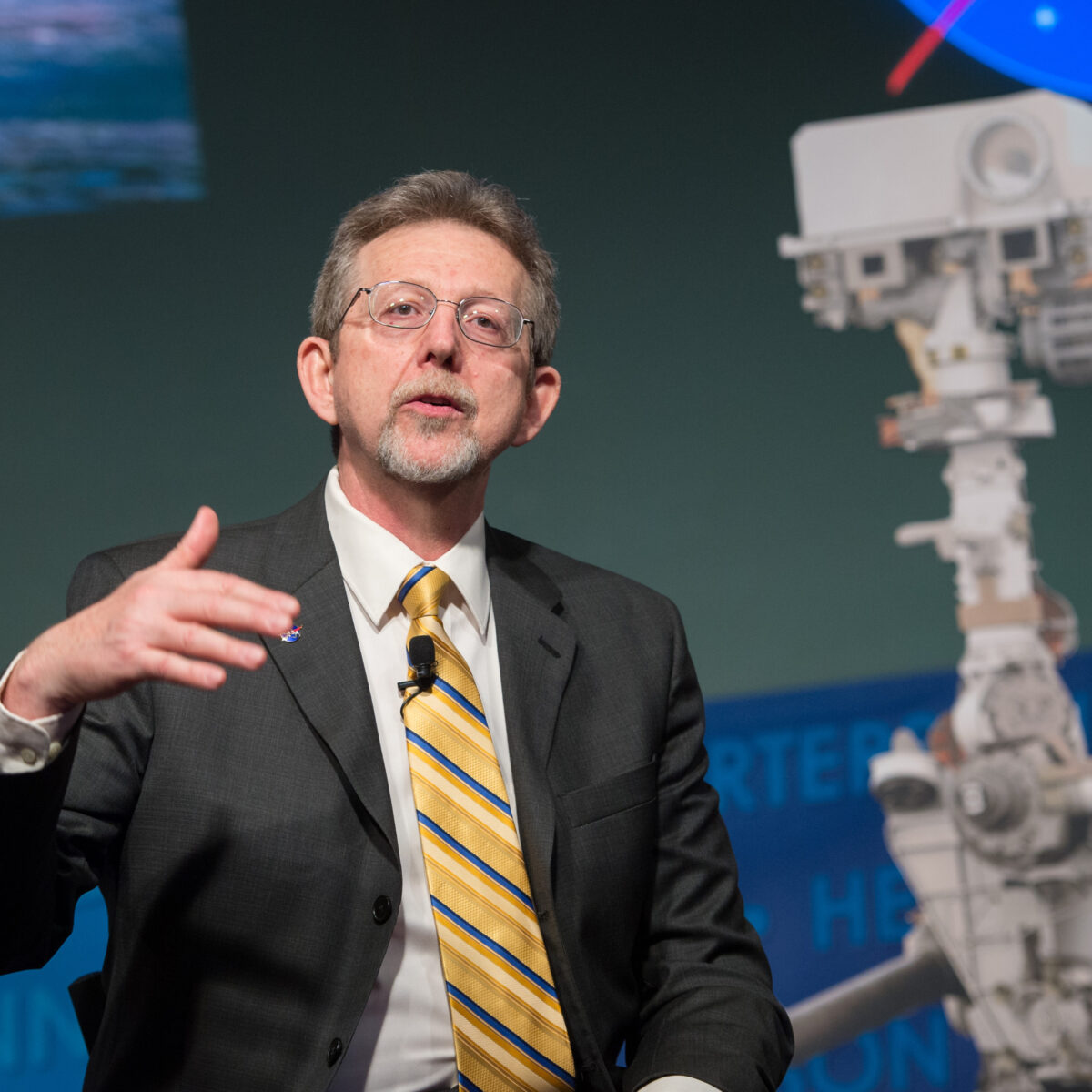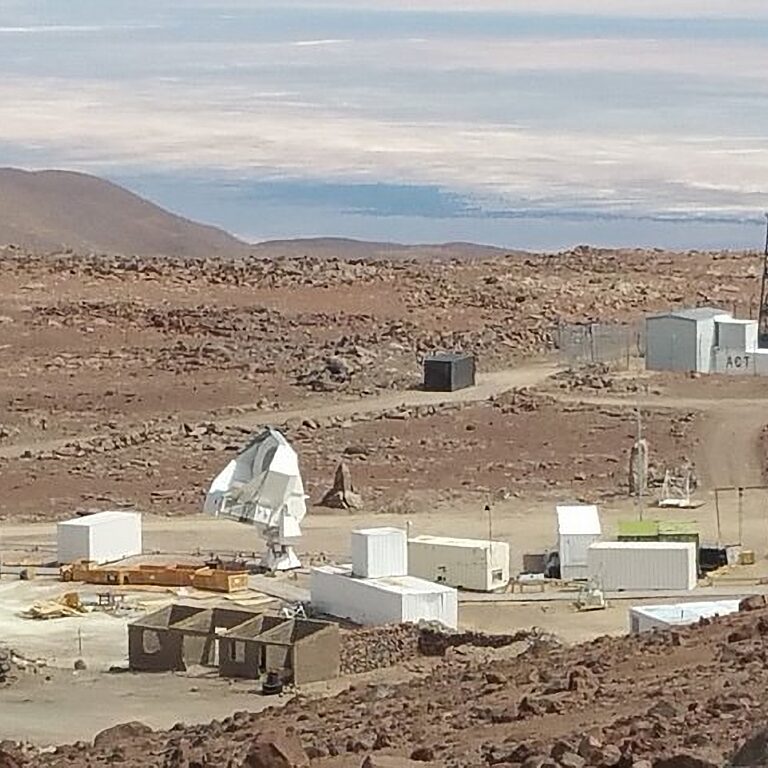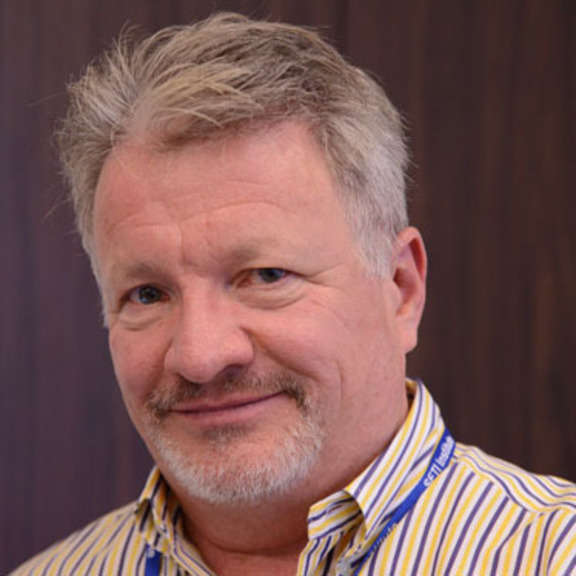Since 2002, Planetary Radio has visited with a scientist, engineer, project manager, advocate, or writer who provides a unique perspective on the quest for knowledge about our Solar System and beyond. The full show archive is available for free.
Search Planetary Radio
Join Planetary Radio host Sarah Al-Ahmed on a trip to the 2023 NASA Innovative Advanced Concepts (NIAC) Symposium in Houston, Texas. This episode is part one of two.
Join us for a tour of the University of Arizona’s Mirror Lab where they use a giant, spinning oven filled with molten glass to create the primary mirrors for the Giant Magellan Telescope.
Meet leaders of two of the most successful Earth-based searches for asteroids, including many that could threaten Earth.
The former director of NASA’s Planetary Science division, Jim Green, retired as the agency’s chief scientist in January. This episode opens with a special announcement from host Mat Kaplan.
Spacecraft need a navigation and communication infrastructure to carry out their missions. Learn how NASA does it and what’s in store for the future.
A fascinating, wide-ranging conversation with Brian Keating, director of the Simons Observatory that will search for our cosmic origins from a mountaintop in Chile’s Atacama region.
How astronomers at California’s Palomar Observatory revolutionized our understanding of the cosmos.
Host Mat Kaplan talked with the Arecibo Observatory director just hours before the giant radio telescope came crashing down.
Radio telescopes are delivering stunning images that, in some cases, current optical telescopes can’t equal. Witness the 20 beautiful protoplanetary disks imaged by the DSHARP team using the ALMA radio telescope in Chile.
Happy Astronomy Day, October 13, 2018! We salute humankind’s long history of stargazing by checking in on what will be our planet’s largest telescope. Patrick McCarthy is an astronomer and a leader of the Giant Magellan Telescope project. He returns with a report on the instrument’s status, followed by a fascinating tour of the GMT facility.
Elon Musk. Jeff Bezos. Richard Branson. These are the names we tend to associate with the current era of private space exploration. But what about John Quincy Adams, James Lick, or Charles Yerkes? Space economist and historian Dr. Alex MacDonald joins us to discuss his book,
Moon Express Founder and CEO Bob Richards shares an inspiring vision for a return to the Moon. It includes introduction of a sophisticated line of robotic spacecraft, the first of which may make a soft landing next year.
Canada has a new Space Advisory Board, and The Planetary Society’s Kate Howells is a member.
Congressman Adam Schiff’s California district includes the Jet Propulsion Laboratory. He is as enthusiastic a fan of the final frontier as you are likely to find under the capitol dome in Washington D.C.
The world’s most powerful solar telescope has just been renamed for the man responsible for its creation. We’ll meet astrophysicist and helioseismologist Phil Goode, and we’ll enjoy a tour of the Goode Solar Telescope.
The University of Texas at Austin’s observatory is high in the hills of west Texas. In this special episode, Mat Kaplan joins the tens of thousands who visit it each year. The occasion was the dedication of the vastly upgraded Hobby-Eberly Telescope, third largest on Earth.
Space historian John Logsdon remembers American hero John Glenn. Planetary Society CEO Bill Nye was a big fan of the Friendship 7 astronaut—less so the new Star Wars movie. Then we get an update on the Giant Magellan Telescope from Patrick McCarthy.
The SETI Institute is about much more than the Search for Extraterrestrial Intelligence. President and CEO Bill Diamond of the Institute explains.
PlanRad’s celebration of Asteroid Day (June 30th) continues as we call UCLA grad student Adam Greenberg at the Arecibo Observatory in Puerto Rico.
Beautiful Death Valley National Park was the setting for a fascinating conversation with famed SETI researcher Jill Tarter and celebrated astronomer, artist and photographer Tyler Nordgren.


 Explore Worlds
Explore Worlds Find Life
Find Life Defend Earth
Defend Earth





















